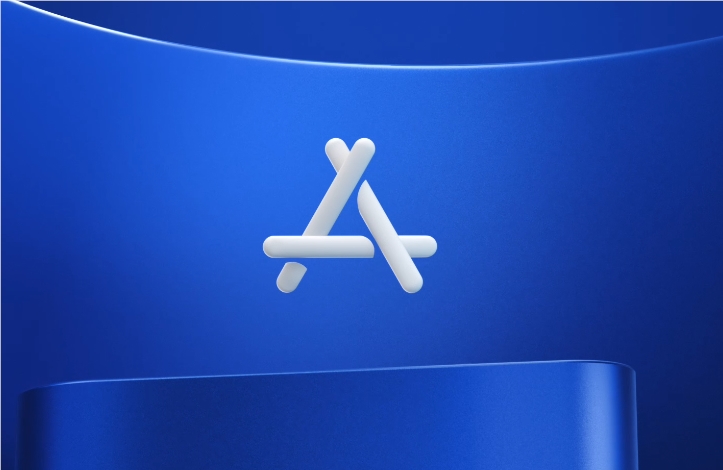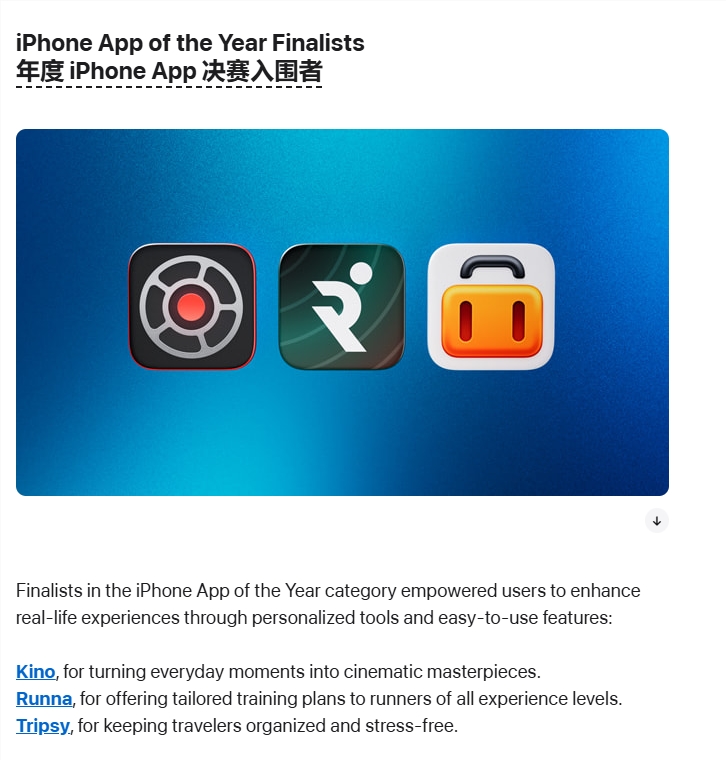Apple's announcement of the 2024 "iPhone App of the Year" finalists has sparked heated debate, and its neglect of artificial intelligence applications has become the focus. In this list, traditional applications dominate, while globally popular AI applications such as ChatGPT are not on the list. This is in sharp contrast to the rapid development of AI technology in the field of mobile applications. The announcement of this list has once again triggered discussions on technology giants’ understanding of the development trend of AI technology.
Recently, Apple announced the 2024 "iPhone App of the Year" finalists. This list once again shows Apple's underestimation of the impact of artificial intelligence technology in the mobile application ecosystem.

Similar to last year, the 2024 nomination list leans more toward traditional iOS apps, including apps that can help users complete specific tasks, such as professional video recording app Kino, personalized running planning app Runna, and travel organization app Tripsy.
AI applications such as ChatGPT, Anthropic's Claude, Microsoft Co pilot, and those that can generate AI photos or videos were not shortlisted for the iPhone App of the Year.

Although ChatGPT became the fastest-growing consumer app in history in early 2023 and reached the 100 million user milestone within a few months, it still failed to receive any official year-end honors from Apple's App Store editorial team. In 2024, ChatGPT joined the cooperation with Apple and committed to improving the functions of Siri. However, this change does not seem to change its fate on the nomination list.
In contrast, Google named party planning app Partiful as App of the Year last year, and ChatGPT's absence has once again raised eyebrows. Although ChatGPT appears frequently in editors' recommendations on the App Store and Google Play, neither Apple nor Google named the app an annual winner last year.
Although ChatGPT failed to be nominated, a handful of AI applications still appeared on Apple's other 2024 nomination lists. For example, the music practice app Moises was nominated for iPad App of the Year. In addition, Adobe Lightroom was also shortlisted for Mac App of the Year for its AI capabilities. . Overall, among Apple’s 45 nominated application and game categories, there are only a handful of AI applications.
Among the cultural impact nominations, only one app was described by Apple as using AI technology, the language learning app EF Hello. While other apps may use AI technology under the hood, they are not marketed as “AI apps.”
Judging from Apple's nomination list, it is obvious that Apple prefers to emphasize applications that stimulate human creativity rather than applications that rely on AI automation. Most of the nominated apps are designed to help users get better out of their iPhone or other device, whether to design, organize, shoot, create or entertain.
In addition, Apple has also added a new Apple Vision Pro category, which will select a winner for one app and one game.
Highlight:
Apple’s 2024 “iPhone App of the Year” nomination list once again ignored the impact of AI applications.
The nominated applications focus primarily on stimulating human creativity rather than relying on AI automation capabilities.
A handful of AI apps appeared in the annual nominations for iPad and Mac, but the overall number of nominations was smaller.
Apple's neglect of AI applications has aroused widespread concern in the industry, and its selection criteria and future development direction deserve further discussion. This may also reflect a certain focus of Apple's strategic layout in the field of AI, which deserves continued attention.